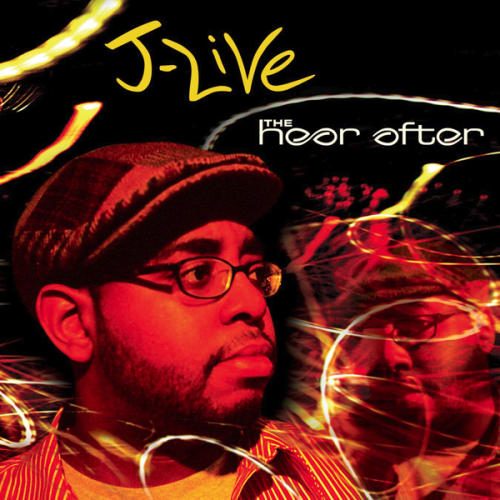Gangster visions laid out over thumping bass lines are selling a lot of records this year. J-Live, however, is not a gangster. He even has a song, “The Sidewalks,” on his latest album, “The Hear After,” which addresses the rampant gangsterism that seems to be suffocating Hip-Hop in 2005. J-Live explains “not too many who haven’t gone through that are willing to say it.” He jokingly added “the Jay-Z’s of the world have the good fortune of so much suffering.”
There is some truth to the joke, however, as J-Live points out that when it comes to talking about street life “it seems to be the popular thing so you have kids who have just started to rap and the only thing they know about any sort of criminology or what’s coming out of the ghetto and being gangsta, is through music and television, but it’s all they want to talk about in their rhymes. It’s like wrestling, it becomes what you do, you put on a mask and bounce around. But if you actually know a martial art you might actually hurt somebody out there. It’s interesting, I think it’s getting so pop, what once upon a time people were striving to get away from.”
While many older folks claim that the music is destroying society J-Live, a former school teacher, sees it as the other way around. “It’s not a detriment,” he explains, “it’s more of a product of the community. 50 Cent wouldn’t be pop if people didn’t want to hear what he wanted to say, or if there wasn’t a market to it. The detriment is more where we come from and how our environment affects our music.”
How J-Live’s environment affects his music is plain to see on tracks like “Brooklyn Public Part 1” which he says he created “to summarize what it was like, to sum up what teachers go through still today.” He continued, adding “a lot of people appreciate the fact that I used to teach and draw too much attention to it, but I wanted to shed some light on what that’s really like.” While J-Live may be out of the classroom as a teacher he hopes to reach the kids in another way. “I want to reach the same kids I couldn’t reach in the classroom through their Walkman. A lot of times, the same kids who couldn’t remember their homework know the words to every album they have, I know it because I’m one of them.”
With songs like “Brooklyn Public Part 1″ and ‘The Sidewalks” J-Live feels he’s addressing some topics that need to be addressed via Hip-Hop. There are plenty of other things regarding his music, however, that have changed a bit this time around. According to J-Live “this album doesn’t have as much of a jazz theme, but it’s still very musical. My family’s grown in size, so that has an affect, but overall it’s still the same principals involved, the same love of music, the same love of Hip-Hop. It’s the same in that’s it’s different. Every album is different and that’s how it’s the same. If you’re doing you’re own thing then we’re the same in that regard.”
Bringing something different to the table and creating something new and interesting is great from an artistic point of view, but getting that sonically, or topically, different piece work heard can be a challenge. When it comes to the concept of the almighty airplay even J-Live has to scratch his head when it comes to finding ways of getting heard. “Even me, as dependent as I am on college radio I don’t get to stay up that late to listen to it, and even if I am up that late I’m outside,” he laments. “I really get immersed in the college radio when I’m out promoting myself on college radio. The internet has helped, but at the same time there are so many people out there trying to do their own thing that you gotta be able to tolerate a certain amount, while in commercial there’s not enough and it’s the same shit.” For J-Live there’s still one way to hear new music that always works best. “Word of mouth. You find out what’s good and you get it. It’s a lot easier to sit at a record store and listen to each joint, get a feel for it and figure out what you want to take home.” “It’s a lot harder for new artists than artists who are already established,” he adds, “not as many of ’em get heard as they need to be but they’re out there.” “I’m glad I’m already established.”
The well established J-Live has been all over the place recently. Not only did he have a new addition to his family, but in 2003 he moved from Brooklyn to Philly. “It’s been hectic,” he says “that’s sort of the theme of the album, how those things come together, the big difference from going out on the road without family and so much depending on what you do out there and when you’ll be able to come home.” Touring while being a father can be tough both on the kids and the dad. J-Live notes “I’d like to get to the point where I don’t have to do as many shows and there’ll be more of a demand as a result.”
With his family set up in Philly and his third album, “The Hear After,” in stores, J-Live is brimming with confidence, albeit a cautious confidence. He refrains from being cocky, a nice change from the normal braggadocio that many rappers have been throwing at the public, but quietly states that when it comes to his career “I think it’s about to change for the better.” That’s music to the ears of J-Live’s ever growing fan base, be they in Philly or back in BK.

